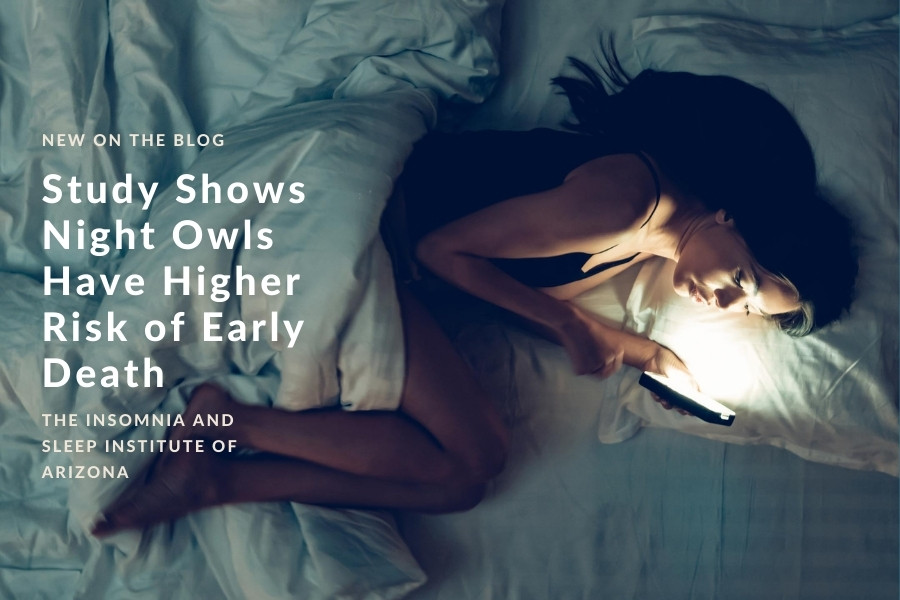Night owls—those who go to bed later and wake up later—are technically a kind of “chronotype.” A recent study revealed that this chronotype is more likely to die an early death due to habits they participate in when staying up late. Night owls may also be struggling with insomnia, one of the most common sleep disorders and one of the many disorders treated at The Insomnia and Sleep Institute of Arizona. The full study was published in the Chronobiology International journal and was preceded by a 2002 Finnish Twin Cohort. The latest study included 24,000 twins and, according to the first author, “The increased risk of mortality associated with being a clearly ‘evening’ person appears to be mainly accounted for by a larger consumption of tobacco and alcohol.”
In the original study, every twin was asked to choose from a variety of questions, defining themselves as “clearly a morning person,” “to some extent a morning person,” “clearly an evening person,” or “to some extent an evening person.” Just ten percent of participants called themselves definitely an evening person and 33 percent said they “somewhat” liked to stay up late. Just over 29 percent were “clearly” morning people and 27.7 percent said they preferred mornings. In the new study, the team looked at death records of the participants, which included 8,728 people from the first study. Data was adjusted to consider alcohol use, smoking, BMI, sleep duration, and education levels, and the researchers discovered that so-called night owls had a nine percent increased risk of early death compared to early birds. According to one expert,
We have known for a long time that those who have an evening type preference are more likely to be heavier drinkers, have alcohol use disorder and are also more likely to use other substances including tobacco.
Still, a nine percent increased risk of early death is “significant” according to the team.
Sleep, Health, and You
Nine percent is such a large disparity that researchers suspect there is something more to it than using more alcohol and tobacco. One theory, according to the team, is that people who stay up late might still have to wake up early—which means they are getting less sleep than early birds and, in turn, sleep deprived. We all have a 24-hour circadian rhythm that’s in charge of regulating the natural melatonin hormone, which promotes sleep. It is typically thought that our chronotype is inherited, and those who are naturally morning birds have their melatonin released earlier than normal. This helps them be active in the early hours.
It has long been known that early birds do better in school, are more energetic during the day, and various studies have suggested that this is why they have lower incidents of cardiovascular disease (which is bi-directional with many sleep disorders). With night owls, melatonin is released later which makes them tired in the morning and prone to enjoying the most energy in the evening. Other studies have shown that night owls are more prone to chronic disease, aren’t as fit, and burn less fat than early birds.
The Risks of Being a Night Owl
Night owls are more insulin-resistant than early birds and tend to take more risks (as reported by other studies). They often skip breakfast, have more fat in the stomach, and overall are at a higher risk of type-2 diabetes. If you’re a night owl and want to change your habits, especially if you think you also struggle with insomnia, the first step is seeing a sleep doctor. Improving your sleep hygiene habits and/or considering medications or cognitive behavior therapy for insomnia (CBT-I) are all common approaches. The strongest reset for our circadian rhythm is bright light, and night owls need a lot of it as soon as they wake up in the morning.
Changing bad night habits, such as sleeping in a bright room or consuming caffeine after breakfast, can also be a big help. Eat earlier (at least three hours before bedtime), exercise in the morning or around noon, and avoid screens before bed. Schedule your consult with a sleep doctor for more help with bedtime habits by calling The Insomnia and Sleep Institute during business hours or completing the online contact form now.





